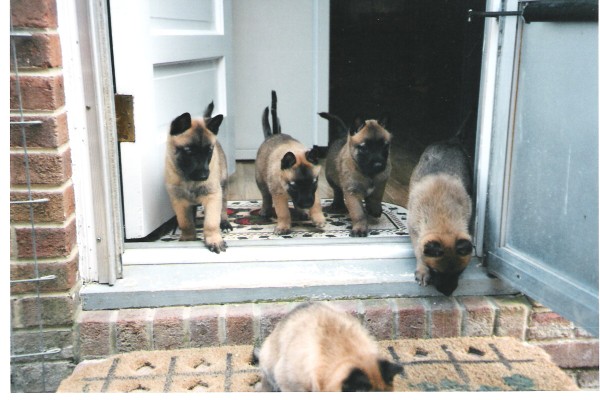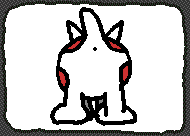 |
||
The first things you need to know about training a puppy...The rudiments of training a puppy usually starts around 4 weeks of age. Unless you bred the litter yourself the breeder you bought your puppy from would have kick started this process.Socialising you puppy is the most important part of puppy training. You are going to be your puppy’s guide, her adopted mother: the pack leader. She’s relying on you to introduce the world to her, and to interpret its pleasures and dangers. At 8-12 weeks your new puppy is at its most responsive, and that’s when socialisation begins. Introducing your dog to all of life’s twists and turns is the foundation stone upon which all later dog training rests. Get the socialisation part right and the odds are extremely high that your adult dog will be well behaved, and just as importantly, well adjusted to living in a human family. Because, vaccinating your dog means that trips out are going to be reduced for a while, there is still plenty that you can and must do, so that when the excursions in to the big wide world do start, they won’t come as such a major shock to your puppy. So, meeting all sorts of people, other pets of any species, noises, playing, toys, children, etc; all of these activities are contributing towards socialising your puppy. The more frequent and the more diverse- the better. So go see some friends, human and canine, or invite them in. 
What socialisation does is to encourage your pet to eventually accept all new situations calmly. When your pup is introduced to people, from toddlers to the elderly, your pet is learning important lessons about how to behave in the company of humans. Obviously you’ll need to be around to supervise these encounters. Likewise, once its safe to go out, go to places where people walk their dogs. The more experiences the better. Your puppy has to learn about other dogs and other people, and the sooner the better. Denying your pet these opportunities could store up future problems. You can see this in adult dogs that have not been properly socialised. The two most common traits caused by poor socialisation which can be seen in adult dogs, are fearfulness and aggressiveness when encountering people and other dogs. Dogs like this are unpredictable, and your goal as a pet owner is to eliminate that trait through supervising all of these early encounters. Your job is to correct, reward, encourage, re-assure and ultimately guide your puppy towards becoming a well-balanced adult dog. One that is comfortable within the human family, and everything that entails. Training your puppy--Early learning.Dogs are social animals. They evolved from the Grey Wolf, and around 85% of all domestic dog behaviour is directly linked to the wolf. Wolves live in well-structured, hierarchal societies called packs. There are few conflicts because each pack member recognises and accepts their place within the pack. At the top are the dominant breeding pair; the pack leaders.For as long as 10,000 years dogs have crossed over and become the companions of humans. You won’t go far wrong in dog training if you recognise that Pedro the charming Chihuahua is 85% wolf. And to get Pedro to accept your rules he’s going to have to accept that you are the leader, and he is a follower. Not too many years ago most ideas on how to train a dog usually amounted to becoming its boss. In practice this meant bullying the dog in to submission. The smart, natural method is to be your dog’s leader, not its boss. So before you make a start on the nitty gritty of dog training, consider how a dog learns. Dogs learn about life through trial and error. At birth pups are a clean slate: no previously learnt bad or good behaviors. The key then is to influence, and ultimately control your pups learning experiences. You’re going to teach her all of the right things, and prevent her from learning all of the wrong things. That’s leadership, or being your pup's mother--they’re the same thing! There’s no big secret behind the methods used to teach some of the best-trained dogs in the world; those of the police and armed services. It’s quite simple. Regular reward, and then an intermittent reward. These methods work. So do your pup a big favour. Steer clear of training methods that involve punishments, collars, chains and all of the other bullying tactics. People tell you that a German Shepherd is this, and a Poodle is that. Ultimately, just like us, each dog is a unique individual. Headstrong, shy, extrovert, confident, cunning- all sorts. But they're all trainable. You’re going to need patience while he learns the rules and the basics of obedience. People try to teach dogs their values, but dogs are only capable of understanding canine values, and thus learning on a canine basis. Think dog, and your way ahead in the puppy training stakes. And to start you off here’s a top training aid. No, it doesn’t cost big bucks. Just small change. Trust me your dog will love this. Use it only as the “Training Treat” [or find another treat, just make sure that it's exclusively the “Training Treat”].
Training a puppy embraces many diverse lessons, but without a doubt, at this early stage, the most important one is about housebreaking your dog. This is just one segment of our puppy-training guide..... 
"
| ||
|
| Puppy Training Start Page | House-training a puppy. |Crate training a puppy. |Dog Names Start Page |Dog Videos Start Page | Return to Homepage Or you can .........
|
||
|
|
||